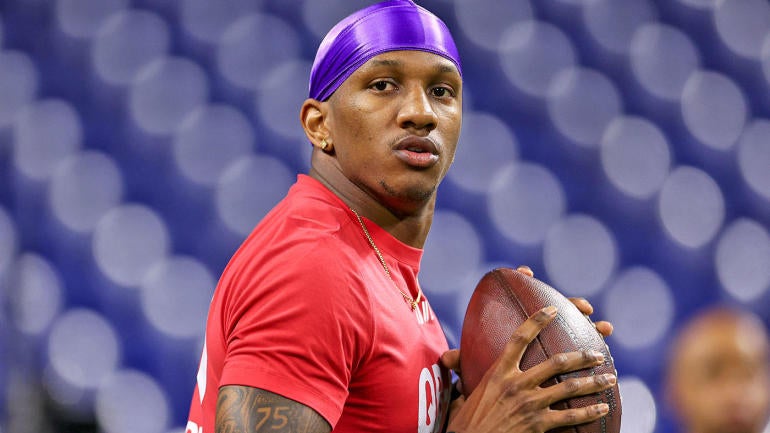
The Atlanta Falcons pulled a stunner early in the 2024 NFL Draft on Thursday, using the No. 8 overall pick on quarterback Michael Penix Jr. Not only was the draft slot a surprise, considering many had Penix pegged as more of a mid- to late-first-rounder, but also the landing spot, with former Minnesota Vikings veteran Kirk Cousins just joining the team as a prized free-agent addition in March.
Did something change between March 13, when Cousins inked a four-year, $180 million deal to become the face of the Falcons, and the minute Atlanta went on the clock Thursday? Was this grander plan always in the works? More importantly, what does it mean for Cousins and the Falcons' remade quarterback room entering 2024?
On the surface, the decision to spend such a premium resource on Penix is a head-scratcher. Unlike, say, Michigan's J.J. McCarthy, who just turned 21, Penix doesn't necessarily profile as an ultra-long-term project; he'll turn 24 in May after six years at Washington. And the big-money investment in Cousins, going on 36, suggested Atlanta was more interested in immediately capitalizing on a competitive roster in a wide-open NFC South. You don't usually drop $180 million on a free-agent quarterback, after all, if you don't intend to win sooner rather than later.
Why, then, didn't the Falcons use the No. 8 pick on someone to aid the Cousins-led roster immediately? Like wide receiver Rome Odunze, for example? Or a top edge rusher or cornerback after a trade down?
There are a few possible explanations, all of which may connect:
- They aren't comfortable rolling with "just" Cousins, even with short-term winning in mind. Cousins, remember, is going on 36 and coming off a torn Achilles that wiped out half his 2023 season. Steady as he's been over the course of his career, those aren't tiny factors.
- Cousins' lucrative deal is actually more team-friendly than many assume. He can be released after 2024 without any negative impact to 2025's salary cap, and/or designed a post-June 1 cut in 2026 to save an immediate $45 million. So if, for whatever reason, he can't match or exceed the highs of his best Vikings days in Atlanta, the Falcons could already feasibly eye a replacement between 2025-2026.
- They genuinely view Penix as tremendous value. While other needs exist on their roster, the Falcons also aren't a barren team. So you could argue they, more than most, could afford a "controversial" swing at the most important position in the sport. Call it a bizarro version of what the Green Bay Packers and Philadelphia Eagles did in 2020, trading up for Jordan Love and taking Jalen Hurts, respectively, even with Aaron Rodgers and Carson Wentz entrenched as those franchises' veteran starters of the time.
Will the gamble pay off for Atlanta? Only time will tell. It certainly heightens pressure on Cousins to deliver on his deal, if it hasn't already unofficially started the clock on his ouster. (Rodgers went on to play another three seasons for the Packers after Love's arrival, while Wentz lasted just one more season in Philly following Hurts' selection.) But it at least represents a serious commitment by the Falcons to upgrade the position after an Arthur Smith era in which post-Matt Ryan maneuvers left a lot to be desired.
There is, of course, a human element to these things. Cousins' agent, for example, is already venting to reporters about his client's frustration over Atlanta allegedly waiting to inform him of the Penix decision until they were literally on the clock. Which is why all eyes will now be glued to training camp and beyond, when the $180 million man and the No. 8 overall pick take the same field in the same uniform, doing their best to pretend a short- and long-term competition is not well underway.
In the end, for the Falcons, if it nets them their first true franchise quarterback since Ryan, well, then all the better. It just might take some drama to get there.






















